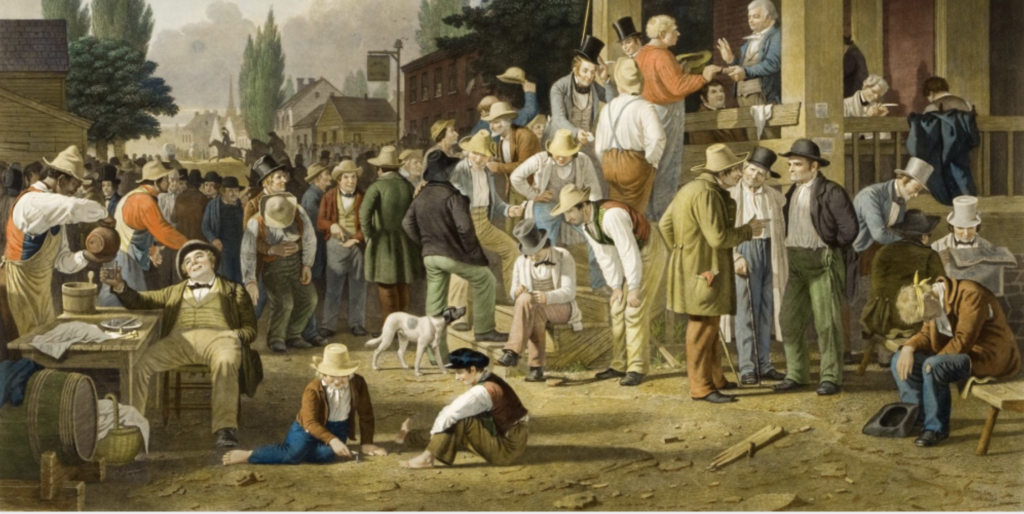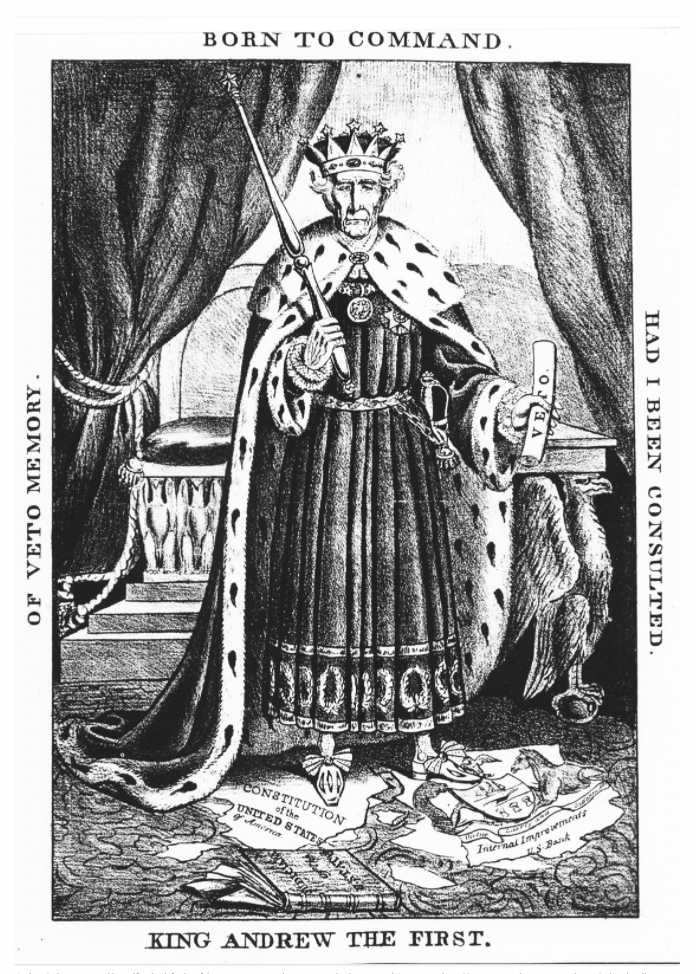Image Gateway. –Rise of American Popular Politics
For more on this painting and its context, see this post at the Dickinson Survey of American History
Discussion Question
- Does the image above celebrate or denigrate the rising populism of mid-nineteenth American democracy?
- How can this image illustrate some of the changing landscapes of early nineteenth-century America, such as the effects of westward expansion, the market revolution, or the rise of mass political parties?
Coffin Handbill (1828)
Discussion Question
- How did Andrew Jackson’s victory in the 1828 election represent a changing of the guard in American political leadership?
Eaton Affair (1829-31)
Discussion Question
- What did the Eaton affair during President Jackson’s first term in office reveal about the hidden influence of women in mid-nineteenth century American politics? How would you characterize the changing roles of women in society at large during the first fifty years of the new American republic?
Bank War (1832)
It is to be regretted that the rich and powerful too often bend the acts of government to their selfish purposes. Distinctions in society will always exist under every just government. Equality of talents, of education, or of wealth can not be produced by human institutions. In the full enjoyment of the gifts of Heaven and the fruits of superior industry, economy, and virtue, every man is equally entitled to protection by law; but when the laws undertake to add to these natural and just advantages artificial distinctions, to grant titles, gratuities, and exclusive privileges, to make the rich richer and the potent more powerful, the humble members of society–the farmers, mechanics, and laborers–who have neither the time nor the means of securing like favors to themselves, have a right to complain of the injustice of their Government. There are no necessary evils in government. Its evils exist only in its abuses. If it would confine itself to equal protection, and, as Heaven does its rains, shower its favors alike on the high and the low, the rich and the poor, it would be an unqualified blessing. In the act before me there seems to be a wide and unnecessary departure from these just principles. –Andrew Jackson veto message, July 10, 1832, for proposed recharter of the Second Bank of the US
Discussion Question
- How did both Whigs and Democrats battle for the populist mantle in the new age of partisan politics during the 1830s and 1840s? How was the nature of American labor evolving during this period?




